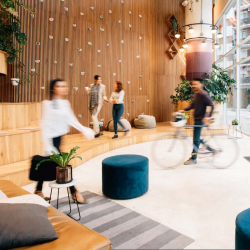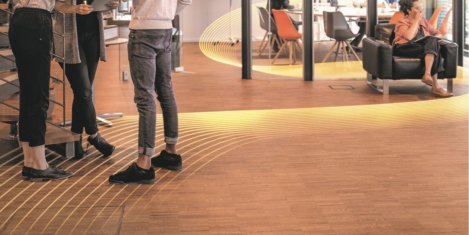To provide the best experiences, we use technologies like cookies to store and/or access device information. Consenting to these technologies will allow us to process data such as browsing behaviour or unique IDs on this site. Not consenting or withdrawing consent, may adversely affect certain features and functions.
The technical storage or access is strictly necessary for the legitimate purpose of enabling the use of a specific service explicitly requested by the subscriber or user, or for the sole purpose of carrying out the transmission of a communication over an electronic communications network.
The technical storage or access is necessary for the legitimate purpose of storing preferences that are not requested by the subscriber or user.
The technical storage or access that is used exclusively for statistical purposes.
The technical storage or access that is used exclusively for anonymous statistical purposes. Without a subpoena, voluntary compliance on the part of your Internet Service Provider, or additional records from a third party, information stored or retrieved for this purpose alone cannot usually be used to identify you.
The technical storage or access is required to create user profiles to send advertising, or to track the user on a website or across several websites for similar marketing purposes.
 As businesses continue to evolve their workplaces to best meet the needs of their employees, JLL’s global Future of Work Survey claims that 72 percent of decision makers believe the office is critical to doing business. The research shows that over the next several years companies anticipate hybrid work to become the dominant model and will be looking across their real estate portfolios to re-think their office spaces, invest in new technology, including virtual offices, and prioritise sustainability. (more…)
As businesses continue to evolve their workplaces to best meet the needs of their employees, JLL’s global Future of Work Survey claims that 72 percent of decision makers believe the office is critical to doing business. The research shows that over the next several years companies anticipate hybrid work to become the dominant model and will be looking across their real estate portfolios to re-think their office spaces, invest in new technology, including virtual offices, and prioritise sustainability. (more…)












 Issue 12 of IN Magazine is in production, but in the meantime
Issue 12 of IN Magazine is in production, but in the meantime 






















August 25, 2022
How Microsoft’s social listening research highlighted changing attitudes to work
by Camila Angio • Comment, Technology, Wellbeing